39 Argentine inventions that you probably didn't even know - Part 1
Hello again, pretty people!
As I have said in my introduction, well I'm from Argentina, and we have much more than Maradona, Messi and Tango =P
So, I want to share it (some of them surprises even me):
Very sorry for the translations in advance (I did them myself):
1. Fingerprints.

The dactyloscopy System, the method of classification and the technology of identification of people by his fingerprints, was invented in 1891 by the Argentine policeman Juan Vucetich, impelled by the enormous amount of crimes unresolved. The irony of this is that now Argentina is one of the countries least advanced in terms of the recognition of people.
2. Coronary artery bypass.

The surgical intervention to treat heart blockages was created by Dr. René Favaloro in 1967. This method revolutionized surgery, being to this day the most practiced in the world. Unfortunately, the bypass was not able to save Favaloro's life, his foundation had great economic debt and he asked for the national government help, without receiving a response, which led him to commit suicide. On July 29, 2000, after writing a letter to President De La Rua criticizing the health system, he took his life from a shot to the heart.
3. Alfajor.

It's production dates back to the 1950s on the Argentine Atlantic coast. Brands such as La Habana and Balcarce are the first ones, which are more than 30 different in kiosks and supermarkets. The 2016 statistics indicate that in Argentina, people consume more than 1000 millions alfajores per year, making it the country of the world that consumes more alfajores, an important amount considering that it is a country of 40 million citizens.
4. Blood transfusion.

Blood transfusion was invented after three years of research, Luis Agote in 1914 invented a system to keep blood free of clots, even that the direct transfusion existed many years before, it was not possible to conserve the blood, it was necessary to pass it directly and immediately from one patient to another. He never patented his invention, but it spread it immediately.
5. The helicopter.

The helicopter, although it's concept existed even before Leonardo da Vinci in the fifteenth century, the first to be able to fly and be controlled was fully created and piloted in Buenos Aires in 1922. The systems invented by the Argentinean Raul Pateras de Pescara are still used in the manufacture of the most modern helicopters, at least according to NASA. The Argentine Aircraft Factory is also responsible for several unique machines in the history of aviation.
6. Dulce de leche. (Milk Caramel)

There are several stories about the origin of dulce de leche. However it is difficult to establish which is the true, many of the countries where it's produced, claim for the invention. In Argentina there is a popular and legendary story that dates his invention towards the year 1829 were Juan Manuel de Rosas and his political enemy (and cousin brother) Juan Lavalle reunited to sign pact peace. The maid of the house forgot the milk in the fire and found a thick substance and brownish. The taste of it pleased Rosas and share it with Lavalle meanwhile they discussed the points of the pact, giving an accidental origin to dulce de leche.
7. The pen.

Biró immediately visualized the pen or "Birome" when some children played with balls in the street and one of them overcame a puddle, leaving a trail of water on the asphalt. With the same principle, he invented the deodorant to ball, among his other 30 patents, that includes the automatic gearbox and a device to obtain energy of the waves of the sea. Most of them are still on use without major modifications so far.
8. The bus.

Its origin in the city of Buenos Aires goes back to 1928, in which a group of taxi drivers decided to realize a fixed trip announcing with a poster in its front part and allowing to raise more of one passenger.
9. Traffic light for the Blind.
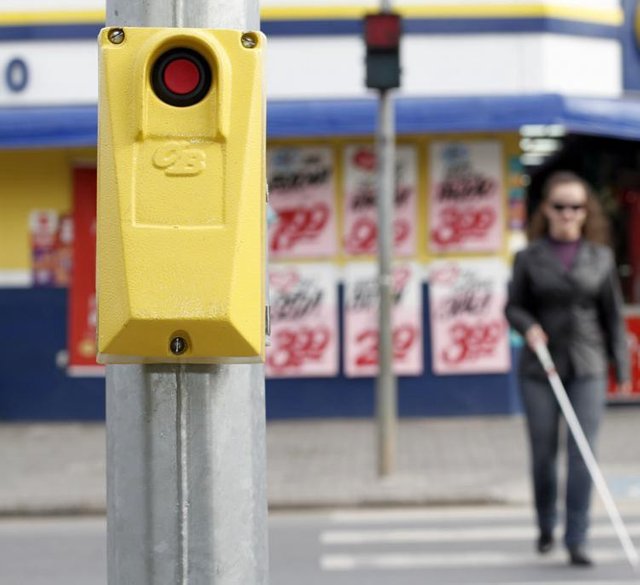
Mario Dávila patented in 1983 the first traffic light for the blind. The device installed in the busy street corners emits a sound at different speeds: at fast speed it means that there is free way to cross the street, at slow speed to stop.
10. Staff for the Blind.
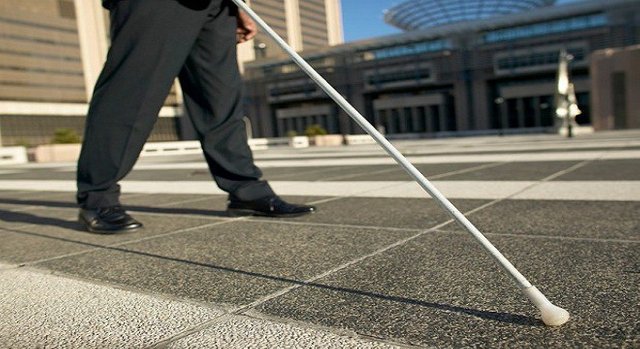
In 1921, Jose Mario Fallótico saw a blind man waiting for help to cross a street in Buenos Aires, but nobody noticed. He thought of creating something that was a tool and at the same time a symbol to warn that the person needs help. The cane for the blind has its own international day (October 15). The latest version, which works with ultrasound, is also Argentine.
11. The Cartoons.
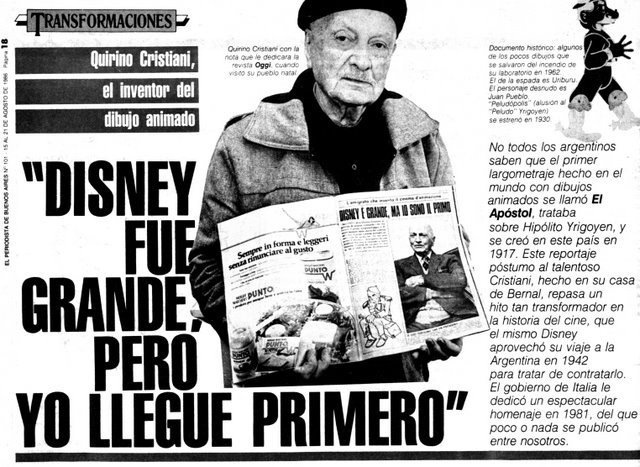
Quirino Cristiani (Santa Giuletta, Italy, July 2, 1896 - Bernal, Argentina, August 2, 1984) was a cartoonist and director of Argentine animation responsible for the firsts two animated films and the first animated film with sound in the world. In his adolescence, Quirino showed a passion for drawing. He took a short course at the Academy of Fine Arts and soon found work drawing cartoons for newspapers, which at that time published many comics and political satire. In 1917 he made the first animated film in history, The Apostle.
12. Dogo argentino.

This dog breed was created by the doctor Antonio Norez Martinez, being the most widespread Argentine canine breed in the world.
13. Syringe and self-discharging needle.

The invention of the businessman Arcusin includes an inseparable syringe, the first finding to avoid the exchange of needles, the common practice among drug addicts. The second feature of the invention is the plunger which draws and pushes the liquid to be injected.
14. Tango.
Tango is a musical genre and a dance. Of purely urban nature and internationally renowned, musically it has binary form (theme and chorus) and four-quarter beat (although it is called "two by four"). Classically it is interpreted by the typical orchestra or sextet and recognizes the bandoneón as its essential instrument.
15. Milanesa Napolitana.
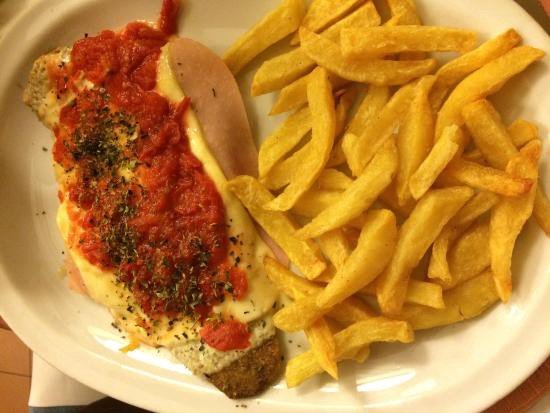
Is a typical dish of Argentina, usually beef (could be chicken) baked to be coated as a pizza, with tomato sauce and cheese Mozzarella, adding different ingredients (ham, bacon, tuna, onion ...)
16. Radio stations.
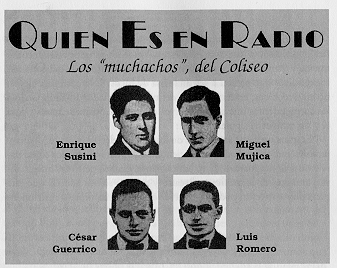
The world's first radio station took place at the Teatro Coliseo in Buenos Aires in 1920 and continued to broadcast until 1997. Obviously, the radio is not an Argentine invention, but it was only a technological rarity until Enrique Susini created the first network of broadcasting with them, Becoming, in addition, the first announcer of the world. Susini met Albert Einstein in 1925, who described him as "one of the first intelligences of Argentina".
17. Magiclick.

The magiclick is a product invented in Argentina by Hugo Kogan in 1963, the name of his invention comes from lighting the flame with the push of a button. This device is only a spark igniter, which is produced with a piezoelectric device.
18. IKA-Renault Torino.

The IKA Torino (later called the Torino) is a medium-sized car that was manufactured in Argentina by IKA Industrias Kaiser Argentina, between 1966 and 1982, based on the American Rambler of the third generation with a Tornado engine of 3 or 3.8 liters.
19. Argentine polar dog.

The Argentine polar dog (PPA) is an extinct canine breed, developed by the Argentine Army to equip it's Antarctic bases in transport functions. The PPA was a cross between Siberian Husky, Alaskan Malamute, Greenlander and Manchurian Spitz. It was extinguished in 1994 as a result of it's repatriation to the continent in compliance with the regulations of the Antarctic Treaty on Environmental Protection (TAPMA).
20. Siphon Drago

The siphon Drago is a siphon for the consumption of soda (sparkling water) which can be accompanied by some flavoring like powdered juice, grenadine, wine, etc. It was manufactured by Drago company in Argentina. Although there are imitations with the same characteristics, it first appeared in 1965.
Hope that you have enjoyed it, see you in part 2 =)
Over and out.